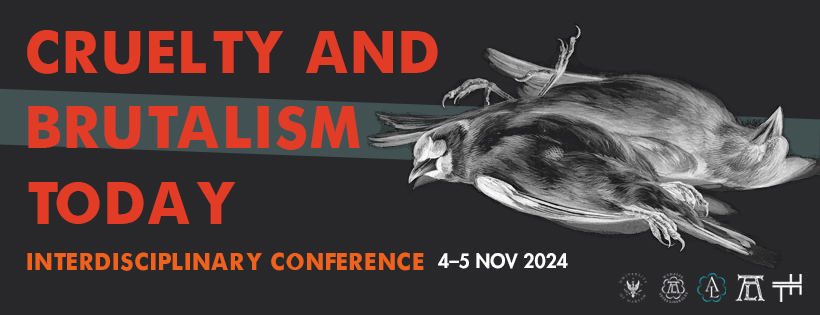Maria Wodzińska
(Independent Researcher)
Abstract:
The purpose of my speech is to pay attention to two intersecting phenomena: the radicalization of migration policies and the expansion of security measures. Based on Achille Mbembe’s term, I refer to them as brutalism of migration and migration of brutalism respectively. In the presentation, I will show the applicability of the term brutalism in both contexts by discussing concrete examples of practices.
The starting point is the recognition that we are living today at a time when migration has become the norm. There are many reasons for this, most often linked to the policies of specific countries, wars, economic crises, or climate change. These factors frequently overlap and intensify each other, giving the impression of being scattered hotspots on the map that need to be isolated, contained, and regulated using „states of emergency”, walls, barriers, and border protection technologies. Systemic violence at national borders has become an immanent part of modernity, which in this case can be described, to paraphrase the Cameroonian philosopher Achille Mbembe, as the „brutalism of migration”.
A parallel phenomenon is the migration of brutalism. This process is associated with the implementation of practices and the use of infrastructures previously used for different purposes – often of a military nature or related to the desire to ensure broader security in a particular place on the world map. The control methods and technological solutions used by the US Army during the Iraq War (2003-2011) were applied to the management of the US population after it ended. The situation is no different on the Polish-Belarusian border. We are dealing both with the transplantation of solutions developed as a part of the participation of the Polish Armed Forces in international military contingents, associated with operating in a state of war, to a place where (at least declaratively) there is peace, and with the application of practices aimed at reducing migration, developed and implemented on the Balkan route as part of state and international migration policies.
The topics I have taken up in the presentation are the result of my research and activist work carried out from 2015 to the present day on the borders of European countries (Serbia, Macedonia, Greece, Poland).
Bio:
Maria Wodzińska holds a bachelor’s and master’s degree (2014-2019) from the Faculty of “Artes Liberales” at the University of Warsaw. She received her Ph.D. degree in Humanities (discipline of Culture and Religion Studies) in 2023 based on her dissertation „Geontopolitics characterised through concept, image, and evidence. Possible ways to include nature in biopolitical and necropolitical reflection” which was written under the supervision of Professor Szymon Wróbel. At the center of her research interests are, on the one hand, biopolitical and necropolitical structures of power, and on the other, forensic research and the whole spectrum of relations between nature and the environment, and extractivism. She recently published a text „Prawo jako spekulacja”, (in: “Hakowanie antropocenu. Nowe koncepcje wspólnot więcej-niż-ludzkich w ekologicznych fabulacjach spekulatywnych”, ed. Małgorzata Sugiera, Jagiellonian University Press, Kraków 2023) and the article „How to Inscribe Nature and the Environment Into the Philosophy of Politics” (in „Philosophy Study”, March 2023, Vol. 13, No. 3).
